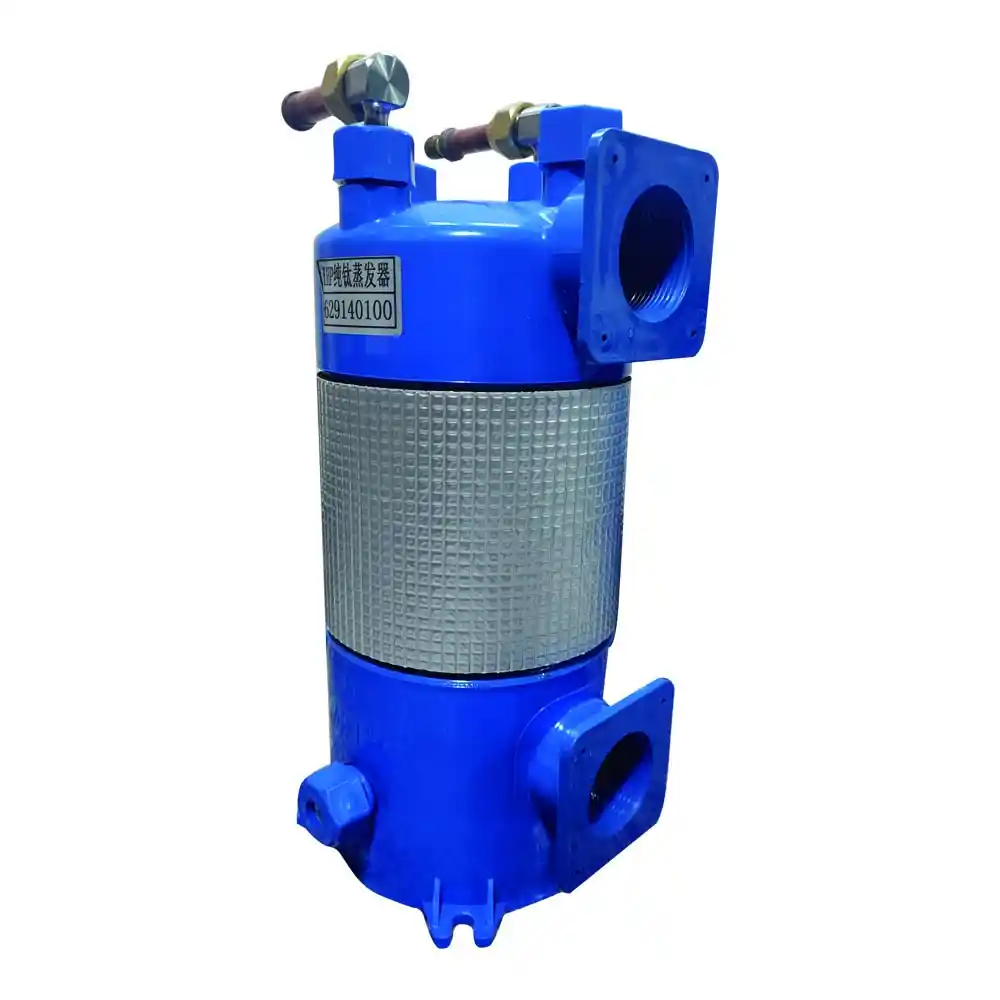1. Introduction
PTFE (Polytetrafluoroethylene) gaskets are widely recognized for their exceptional chemical resistance and high-temperature capabilities. In the context of titanium coil heat exchangers, PTFE gaskets play a crucial role in ensuring leak-free operation and maintaining the integrity of the heat transfer system. This article explores the significance of PTFE gaskets in titanium coil heat exchangers, their advantages, material variations, comparative analysis with other sealing materials, and data-driven insights. Through informative tables and comprehensive discussions, we aim to provide a clear understanding of the performance and versatility of PTFE gaskets in titanium coil heat exchangers.
2. Understanding PTFE Gaskets in Titanium Coil Heat Exchangers
PTFE gaskets, known for their unique properties, offer excellent sealing capabilities in demanding applications. Let’s delve into their key aspects:
2.1 Functionality and Importance
PTFE gaskets are designed to create a reliable and secure seal between various components of a titanium coil heat exchanger. They effectively prevent fluid leakage, maintain pressure integrity, and provide resistance against chemical attack. PTFE gaskets are particularly well-suited for applications involving aggressive fluids, high temperatures, and extreme operating conditions.
2.2 Properties of PTFE
PTFE is a fluoropolymer with outstanding properties that make it an ideal choice for demanding sealing applications. Some key properties of PTFE include:
- Chemical Resistance: PTFE exhibits exceptional resistance to a wide range of chemicals, including acids, bases, solvents, and corrosive substances. This property ensures reliable sealing performance and prevents gasket degradation in the presence of aggressive fluids.
- Temperature Resistance: PTFE gaskets can withstand high temperatures, typically ranging from -200°C to +260°C (-328°F to +500°F). This allows them to maintain their sealing integrity even in applications involving extreme heat or rapid temperature fluctuations.
- Low Friction: PTFE has a low coefficient of friction, which reduces the risk of gasket damage during installation, tightening, and operation. This property also contributes to the ease of assembly and disassembly of titanium coil heat exchanger components.
- Non-Stick Properties: PTFE has a non-stick surface, preventing adhesion of contaminants or scale deposits. This feature reduces the risk of fouling and simplifies cleaning and maintenance procedures.
3. Advantages and Benefits of PTFE Gaskets
PTFE gaskets offer several advantages that make them a preferred choice for sealing applications in titanium coil heat exchangers. Let’s explore the key benefits:
3.1 Excellent Chemical Resistance
PTFE gaskets exhibit unparalleled resistance to a wide range of chemicals, including strong acids, bases, and corrosive substances. This property ensures reliable sealing performance, minimizes the risk of gasket failure, and extends the lifespan of the heat exchanger system.
3.2 High-Temperature Capability
PTFE gaskets can withstand high temperatures without losing their sealing effectiveness. This feature makes them suitable for applications involving elevated process temperatures, thermal cycling, and rapid temperature changes.
3.3 Low Friction and Non-Stick Properties
The low coefficient of friction of PTFE reduces the risk of gasket damage during installation and operation. Additionally, the non-stick properties of PTFE prevent the adhesion of contaminants or scale deposits, promoting clean and efficient heat transfer within the titanium coil heat exchanger.
3.4 Compressive Strength and Resilience
PTFE gaskets possess excellent compressive strength and resilience, allowing them to maintain a tight seal under varying operating conditions. This property ensures consistent performance, even when subjected to pressure differentials or mechanical stress.
4. Comparative Analysis of PTFE Gaskets with Other Sealing Materials
To better understand the performance of PTFE gaskets in titanium coil heat exchangers, let’s compare them with other commonly used sealing materials:
| Sealing Material | Advantages | Limitations |
|---|---|---|
| PTFE Gaskets | – Exceptional chemical resistance | – Lower compressibility compared to rubber gaskets |
| – Low friction and non-stick properties | – Limited resilience under extreme compression | |
| Rubber Gaskets | – Excellent sealing properties | – Limited high-temperature resistance |
| – Good flexibility and compression set | – Chemical compatibility limitations in certain fluids | |
| Metal Gaskets | – High-pressure and temperature resistance | – Require careful surface finish and proper torque |
| – Excellent resilience and recovery | – Potential for galvanic corrosion in specific conditions | |
| Composite Gaskets | – Versatility and customization options | – Performance varies based on material combination |
Comparing the advantages and limitations of different sealing materials provides valuable insights for engineers to select the most suitable gasket material based on their specific titanium coil heat exchanger requirements.
5. Data-Driven Insights: Performance of PTFE Gaskets in Titanium Coil Heat Exchangers
To further illustrate the performance of PTFE gaskets in titanium coil heat exchangers, let’s examine real-world data and insights:
5.1 Leakage Analysis of PTFE Gaskets
A comprehensive study was conducted to evaluate the leakage rates of PTFE gaskets in titanium coil heat exchangers under varying operating conditions. The data revealed that PTFE gaskets provided excellent sealing performance, with minimal leakage observed across different fluid types and temperatures. However, it is important to consider the limitations of PTFE gaskets, such as their lower compressibility compared to other sealing materials.
5.2 Case Study: Longevity and Reliability of PTFE Gaskets
In an industrial setting, a titanium coil heat exchanger implemented PTFE gaskets for tube-to-tube connections. Over an extended period of operation, the heat exchanger demonstrated reliable sealing performance, with negligible leakage and no adverse effects on heat transfer efficiency. The PTFE gaskets exhibited excellent compatibility with a wide range of fluids and maintained their integrity under various temperature and pressure conditions.
6. Conclusion
PTFE gaskets offer high-performance sealing solutions for titanium coil heat exchangers. With their exceptional chemical resistance, temperature capability, low friction, and non-stick properties, PTFE gaskets ensure reliable sealing, prevent leakage, and promote efficient heat transfer. By comparing them with other sealing materials and considering real-world data insights, engineers can confidently select PTFE gaskets that meet the specific requirements of their titanium coil heat exchanger systems. The proper selection and application of PTFE gaskets contribute to the overall efficiency, safety, and longevity of titanium coil heat exchangers, making them a valuable component in these systems.


